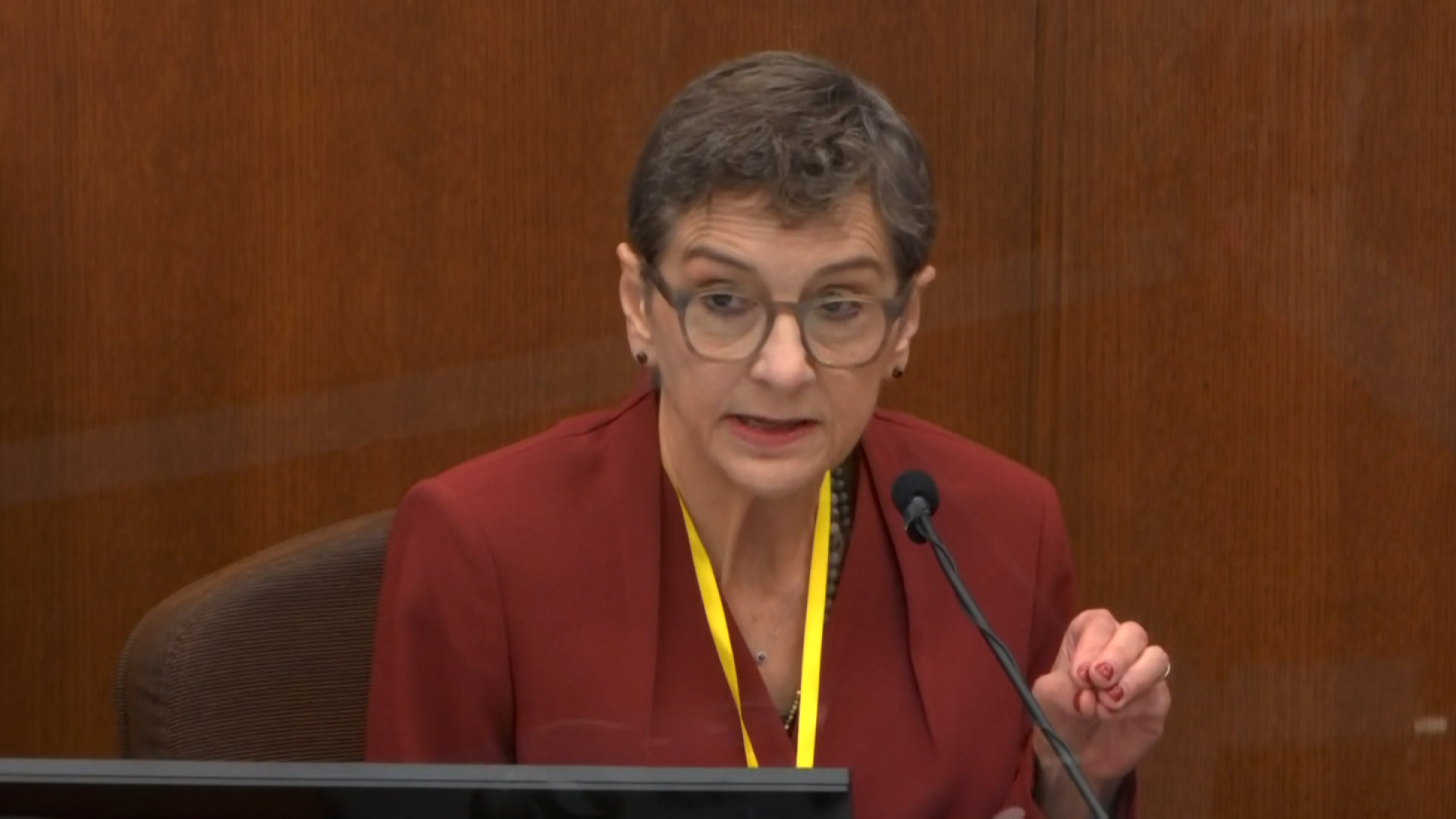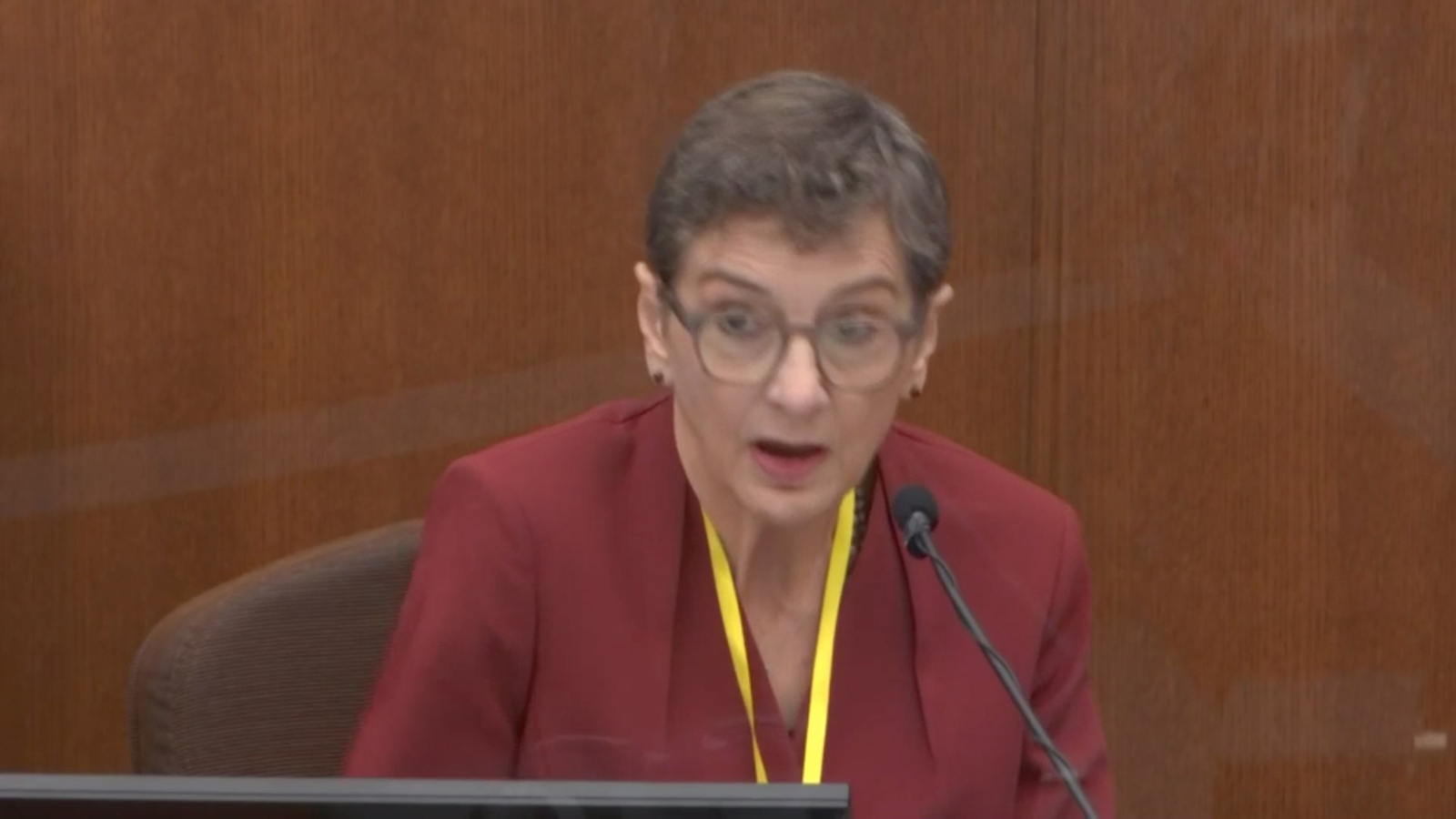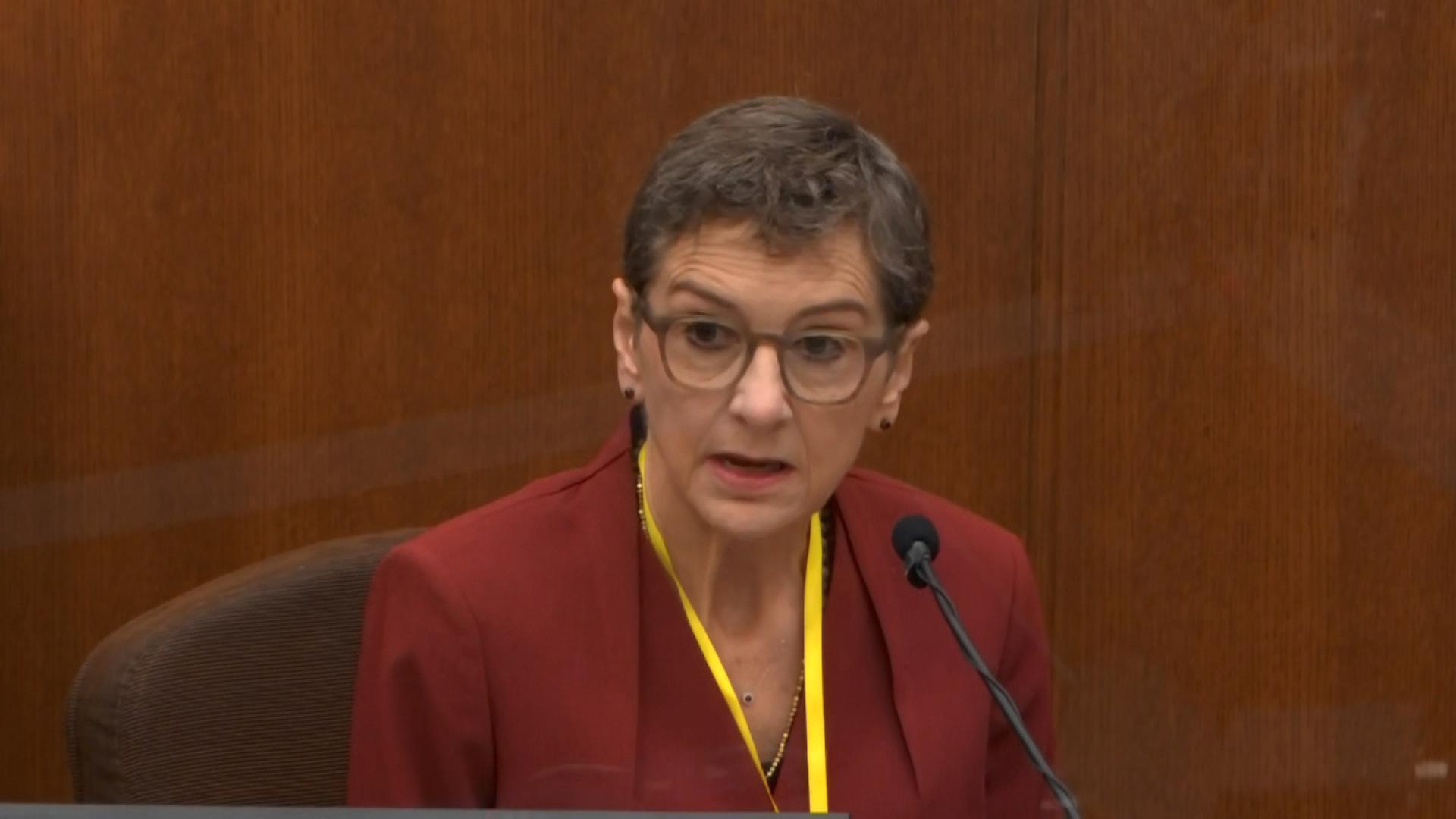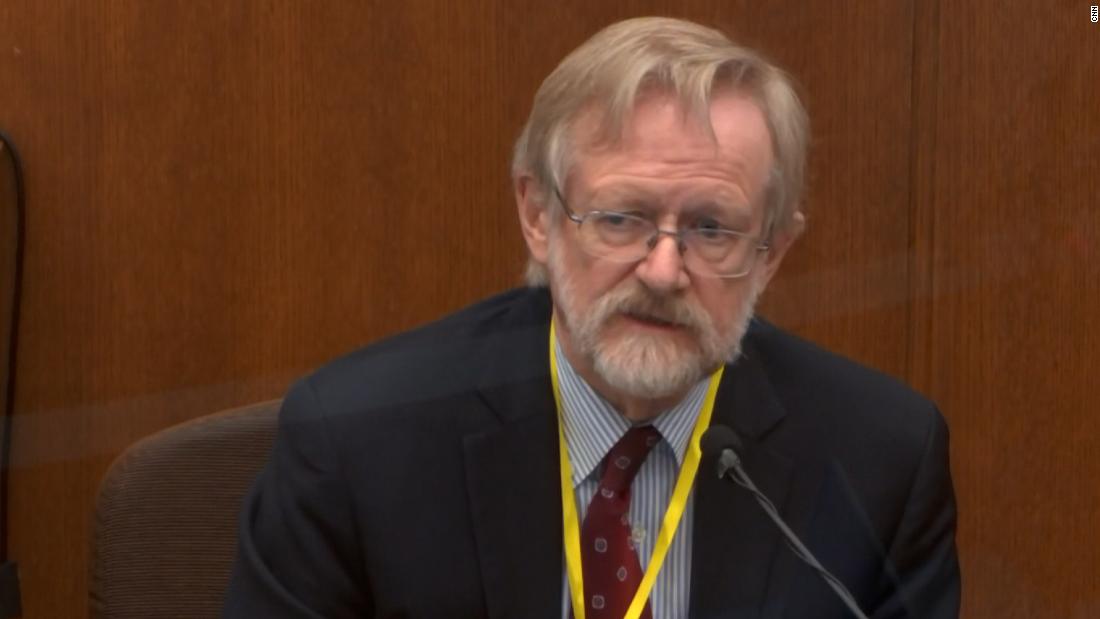
Dr. Lindsey Thomas, a forensic pathologist, said the "subdual, restraint and compression" of law enforcement of George Floyd was "ultimately" the immediate cause of death.
"This is a death were both the heart and lung stopped working. And the point is that it's due to law enforcement subdual, restraint and compression. That is kind of what ultimately is the immediate cause of death. It's the subdual, restraint and compression," Thomas said.
Asked by the prosecution to explain what the terms "subdual restraint and neck compression" mean, Thomas said:
"Those were activities by the law enforcement agency officers involved. Subdual is subduing someone, trying to restrain them. In Mr. Floyd's case, involved handcuffing him, his positioning on the ground, the prone position. The people kneeling on him. And the net compression is the knee on the neck specifically. Additionally, there was some back and other things being compressed by the officers."
If you put all of those together, she continued, "what it means to me, is that the activities of the law enforcement officers resulted in Mr. Floyd's death. And that specifically those activities were the subdual, the restraint and the neck compression."










